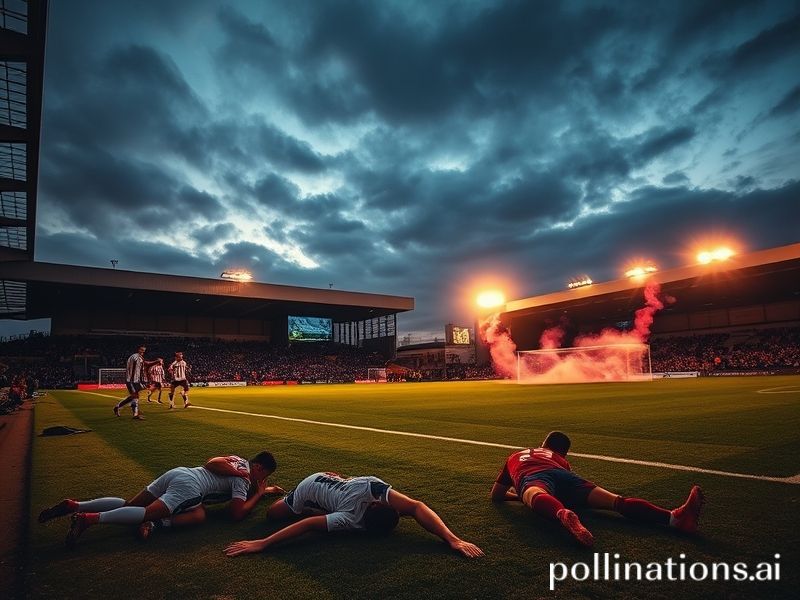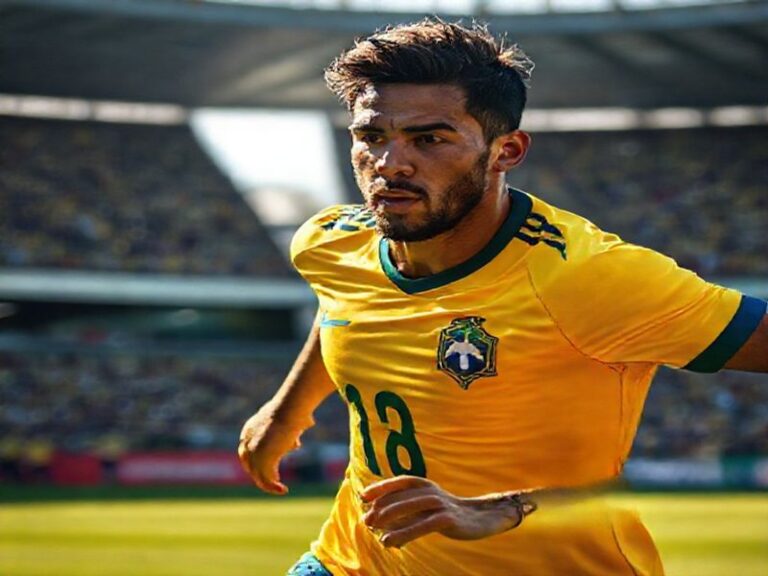When Middlesbrough Met West Brom: A Quietly Apocalyptic Championship Draw Watched by the World
The Riverside Stadium – a concrete slab dumped on the banks of the Tees like a forgotten IKEA flat-pack – was never meant to host events of geopolitical consequence. Yet on Saturday, Middlesbrough versus West Bromwich Albion quietly became a proxy war for everything that currently ails our interconnected, neurotic little planet.
Consider the cast. Middlesbrough: a post-industrial town that once forged the Sydney Harbour Bridge and now mostly forges resignation. West Brom: another Midlands ex-smelter whose greatest cultural export remains the 1970s sitcom “Doomwatch.” Both clubs are owned by foreign capital (Boro by a billionaire who made his fortune in Far-Eastern data centres, West Brom by Chinese investors whose relationship with solvency is, shall we say, dialectic). The match therefore was less a sporting contest than a live-streamed seminar on late-stage capitalism: two de-industrialised communities reduced to lifestyle brands for absentee landlords, their weekly tribal dance transmitted to 189 countries, most of which couldn’t locate Middlesbrough on a map even if promised free shipping.
Kick-off was delayed seven minutes because the global VAR feed froze – apparently the international fibre-optic cable carrying slow-motion replays of Championship shins was momentarily commandeered by a crypto-trading algorithm in Singapore. This, too, felt apt: everywhere else in the world, serious people were arguing about AI regulation, while on Teesside we waited for a robot in Stockley Park to decide whether a centre-back’s fingernail constituted offside. Somewhere in Davos, a thought-leader probably cited the incident as evidence that digital governance is impossible; here, we just called it Tuesday.
On the pitch, Boro – managed by Michael Carrick, whose default expression suggests a man remembering he left the stove on in 2006 – pressed high and wide. West Brom, under Carlos Corberán, a Spaniard who looks like the philosophy professor you had a crush on before discovering he believed in flat tax, responded with the tactical sophistication of a chess-boxing match. The first half ended 0-0, a scoreline that echoed global climate talks: plenty of movement, no discernible outcome.
Then came the 58th minute, when Morgan Rogers – a 21-year-old Liverpudlian on loan from Manchester City’s talent landfill – curled a shot that deflected off West Brom captain Kyle Bartley’s backside and looped over the keeper like a drunken drone. One-nil. The Riverside erupted with the sort of primal joy normally reserved for discovering a functioning ATM abroad. For thirty seconds, Brexit, inflation, and the existential dread of being alive in 2024 were replaced by the simple certainty that the ball had crossed the line before the dystopia resumed.
West Brom equalised via a penalty so soft it could have been marketed as a travel pillow. Replays showed contact somewhere between negligible and theoretical – the kind of incident that, in the Hague, would be filed under “aggressive tutting.” 1-1. Twitter’s Malaysian fan accounts immediately labelled it “VARshambles,” thereby uniting three continents in shared contempt for officiating standards, the closest thing we have to world peace.
The broader significance? A draw suited neither side’s promotion push, which in macro terms is the Championship’s gift to global economics: a £200 million playoff final whose prize is entry to the Premier League’s television bonanza. That bonanza, incidentally, pays more per match to broadcasters in sub-Saharan Africa than the entire GDP of some nations appearing on that same feed. Somewhere, a Kenyan viewer watched this tussle between England’s 17th and 20th largest towns and wondered why his local hospital still lacks aspirin. The answer, of course, is that we’ve monetised spectacle over substance so thoroughly that even our regional neuroses are exportable content.
Full-time: 1-1. Both sets of fans trudged into the damp Teesside night nursing the familiar ache of hope deferred. Meanwhile, the algorithmic traders in Singapore flipped their attention to Serie A, the VAR cable cooled, and the planet spun on – slightly poorer, slightly less sane, but at least undefeated.







